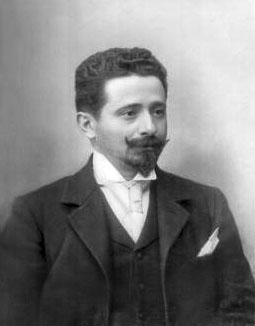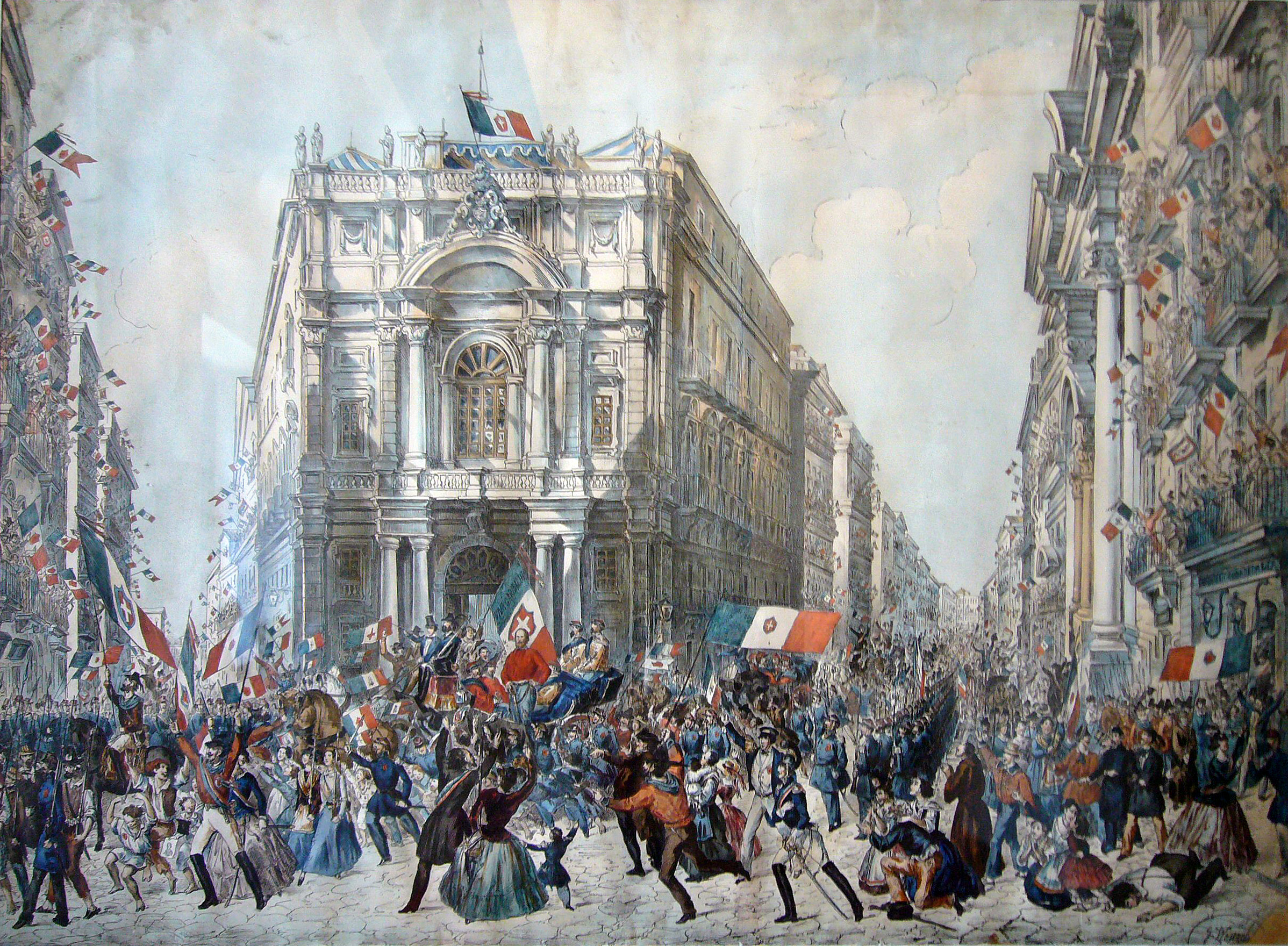|
Herminia Rodríguez Fernández
Herminia Rodríguez Fernández (died 15 January 1944) was a Cuban politician. She was elected to the House of Representatives (Cuba), House of Representatives in 1936 as one of the first group of women to enter Congress of Cuba, Congress. Biography Rodríguez was a Nationalist Union candidate for the House of Representatives in Camagüey Province in the 1936 Cuban general election, 1936 general elections, the first in which women could vote, and was one of seven women elected. She was re-elected as a Republican Democratic Party (Cuba), Republican Democratic Party candidate in 1940 Cuban general election, 1940, serving in the House until her death on 15 January 1944.Julio César González Pagés (2003) ''En busca de un espacio--historia de mujeres en Cuba'', p127 References {{DEFAULTSORT:Rodríguez Fernández, Herminia 20th-century Cuban women politicians 20th-century Cuban politicians Nationalist Union politicians Republican Democratic Party (Cuba) politicians Members of th ... [...More Info...] [...Related Items...] OR: [Wikipedia] [Google] [Baidu] |
House Of Representatives (Cuba)
The Congress of Cuba () was the legislature of Republic of Cuba (1902–1959), Cuba from 20 May 1902 until the Cuban Revolution of 1959. The Congress consisted of the 130-member Chamber of Representatives (''Cámara de Representantes'') and the 54-member Senate (''Senado'') in December 1958. The first Cuban Congress met for the first time on May 5, 1902. Generally, Congress held at least two sessions during a given year. Meetings were interrupted by the Second Occupation of Cuba after the session of September 28, 1906. Following the re-establishment of Cuban-based government in 1909 it met without interruption from January 13, 1909, until April 1933, a few months before President Gerardo Machado was overthrown. During the presidency of Ramon Grau the country's legislative apparatus was largely undertaken by Grau's administration under the auspices of the student revolutionary junta. Commencing with the provisional presidency of Carlos Mendieta a ''Consejo de Estado'' (Council of ... [...More Info...] [...Related Items...] OR: [Wikipedia] [Google] [Baidu] |
Camagüey Province
Camagüey () is the largest of the provinces of Cuba. Its capital is Camagüey. Other towns include Florida and Nuevitas. Geography Camagüey is mostly low lying, with no major hills or mountain ranges passing through the province. Numerous large cays (including what used to be one of Fidel Castro's favourite fishing spots; the Archipiélago Jardines de la Reina) characterize the southern coasts, while the northern coast is lined by Jardines del Rey of the Sabana-Camagüey Archipelago. Sandy beaches are found on both coasts also, and despite a large potential for tourism, the province has seen little development in that area with the exception of Santa Lucía beach, on the province's North coast. Economy The economy of the Camagüey province is primarily cattle and sugar (in the north and south) farming, and the province is known for its cowboy culture, with rodeo Rodeo () is a competitive equestrian sport that arose out of the working practices of cattle herding in Sp ... [...More Info...] [...Related Items...] OR: [Wikipedia] [Google] [Baidu] |
Wilfredo Figuero Gonzalez
Wilfredo is a given name which may refer to: *Wilfredo Alicdan (born 1965), Filipino figurative artist *Wilfredo Alvarado (born 1970), Venezuelan football defender * Wilfredo Bustillo Castellanos (born 1958), Honduran politician *Willy Caballero (born 1981), Argentine football goalkeeper *Wilfredo Caraballo (born 1947), American politician *Wil Cordero (born 1971), Puerto Rican former Major League Baseball player *Wilfredo Gómez (born 1956), three-time world boxing champion from Puerto Rico * Wilfredo Iraheta (born 1967), El Salvadoran retired football defender *Wil Ledezma (born 1981), Major League Baseball pitcher from Venezuela *Wilfredo Martínez (born 1985), Cuban long jumper *Wilfredo Negrón (born 1973), Puerto Rican boxer *Wilfredo Pedraza, Peruvian politician *Wilfredo Santa-Gómez (born 1948), Puerto Rican author *Wilfredo Vázquez (born 1960), three-time world boxing champion from Puerto Rico * Wilfredo Vázquez, Jr. (born 1984), winner of two superbantamweight world box ... [...More Info...] [...Related Items...] OR: [Wikipedia] [Google] [Baidu] |
Cuba
Cuba, officially the Republic of Cuba, is an island country, comprising the island of Cuba (largest island), Isla de la Juventud, and List of islands of Cuba, 4,195 islands, islets and cays surrounding the main island. It is located where the northern Caribbean Sea, Gulf of Mexico, and Atlantic Ocean meet. Cuba is located east of the Yucatán Peninsula (Mexico), south of both Florida and the Bahamas, west of Hispaniola (Haiti/Dominican Republic), and north of Jamaica and the Cayman Islands. Havana is the largest city and capital. Cuba is the List of countries and dependencies by population, third-most populous country in the Caribbean after Haiti and the Dominican Republic, with about 10 million inhabitants. It is the largest country in the Caribbean by area. The territory that is now Cuba was inhabited as early as the 4th millennium BC, with the Guanahatabey and Taino, Taíno peoples inhabiting the area at the time of Spanish colonization of the Americas, Spanish colonization ... [...More Info...] [...Related Items...] OR: [Wikipedia] [Google] [Baidu] |
Congress Of Cuba
The Congress of Cuba () was the legislature of Cuba from 20 May 1902 until the Cuban Revolution of 1959. The Congress consisted of the 130-member Chamber of Representatives (''Cámara de Representantes'') and the 54-member Senate (''Senado'') in December 1958. The first Cuban Congress met for the first time on May 5, 1902. Generally, Congress held at least two sessions during a given year. Meetings were interrupted by the Second Occupation of Cuba after the session of September 28, 1906. Following the re-establishment of Cuban-based government in 1909 it met without interruption from January 13, 1909, until April 1933, a few months before President Gerardo Machado was overthrown. During the presidency of Ramon Grau the country's legislative apparatus was largely undertaken by Grau's administration under the auspices of the student revolutionary junta. Commencing with the provisional presidency of Carlos Mendieta a ''Consejo de Estado'' (Council of State) undertook advisory leg ... [...More Info...] [...Related Items...] OR: [Wikipedia] [Google] [Baidu] |
Nationalist Union
Nationalism is an idea or movement that holds that the nation should be congruent with the state. As a movement, it presupposes the existence and tends to promote the interests of a particular nation, Smith, Anthony. ''Nationalism: Theory, Ideology, History''. Polity, 2010. pp. 9, 25–30; especially with the aim of gaining and maintaining its sovereignty (self-governance) over its perceived homeland to create a nation-state. It holds that each nation should govern itself, free from outside interference (self-determination), that a nation is a natural and ideal basis for a polity, and that the nation is the only rightful source of political power. It further aims to build and maintain a single national identity, based on a combination of shared social characteristics such as culture, ethnicity, geographic location, language, politics (or the government), religion, traditions and belief in a shared singular history, and to promote national unity or solidarity. There are variou ... [...More Info...] [...Related Items...] OR: [Wikipedia] [Google] [Baidu] |
1936 Cuban General Election
General elections were held in Cuba on 10 January 1936.Dieter Nohlen (2005) ''Elections in the Americas: A data handbook, Volume I'', p197 Miguel Mariano Gómez of the Tripartite Coalition (an alliance of the Liberal Party, the Nationalist Union and Republican Action) won the presidential election, whilst the Coalition also emerged as the largest party in the House of Representatives. The elections were the first in which women could vote,Elections and Events 1935-1951 The Library, UC San Diego and voter turnout was 67.1%. Results President Senate House of Representatives Seven women were elected to the House of Representatives ...[...More Info...] [...Related Items...] OR: [Wikipedia] [Google] [Baidu] |
Republican Democratic Party (Cuba)
The Democratic Party (, ), officially known as the Portuguese Republican Party ( ), was a Portuguese centre-left political party during the Portuguese First Republic. It was also the self-proclaimed successor to the original Portuguese Republican Party, which had been behind the revolution that established the Portuguese First Republic in 1910. The name "Democratic Party" was never the official name of the party, as the Portuguese Republican Party never ceased to exist. However, the party was ''de facto'' different and thus the other parties (that belonged to the PRP before 1910) used the new expression to assert their opposition to the claim of continuation of the PRP by Afonso Costa, the first leader of the Democratic Party. Other names were given to the members of the Democratic Party, like the Afonsists, named after Afonso Costa. History When the Evolutionists and Unionists seceded from the Portuguese Republican Party in February 1912, the Democratic Party declared i ... [...More Info...] [...Related Items...] OR: [Wikipedia] [Google] [Baidu] |
1940 Cuban General Election
General elections were held in Cuba on 14 July 1940.Dieter Nohlen (2005) ''Elections in the Americas: A data handbook, Volume I'', p203 Fulgencio Batista won the presidential election running under the People's Socialist Coalition banner. Although the Partido Auténtico emerged as the largest single party in the House of Representatives, Bastista's electoral alliance, the Democratic Socialist Coalition, won a majority of seats. Voter turnout was 73%.Nohlen, p204 Results President Senate House of Representatives References {{Cuban elections Cuba General Presidential elections in Cuba Parliamentary elections in Cuba Cuba Cuba, officially the Republic of Cuba, is an island country, comprising the island of Cuba (largest island), Isla de la Juventud, and List of islands of Cuba, 4,195 islands, islets and cays surrounding the main island. It is located where the ... Election and referendum articles with incomplete results ... [...More Info...] [...Related Items...] OR: [Wikipedia] [Google] [Baidu] |
Nationalist Union Politicians
Nationalism is an idea or movement that holds that the nation should be congruent with the state. As a movement, it presupposes the existence and tends to promote the interests of a particular nation, Smith, Anthony. ''Nationalism: Theory, Ideology, History''. Polity, 2010. pp. 9, 25–30; especially with the aim of gaining and maintaining its sovereignty (self-governance) over its perceived homeland to create a nation-state. It holds that each nation should govern itself, free from outside interference (self-determination), that a nation is a natural and ideal basis for a polity, and that the nation is the only rightful source of political power. It further aims to build and maintain a single national identity, based on a combination of shared social characteristics such as culture, ethnicity, geographic location, language, politics (or the government), religion, traditions and belief in a shared singular history, and to promote national unity or solidarity. There are various ... [...More Info...] [...Related Items...] OR: [Wikipedia] [Google] [Baidu] |


